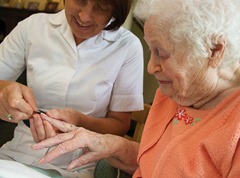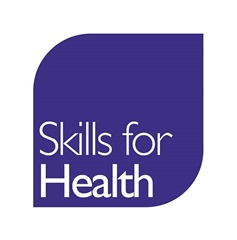Thinking outside the box for care services
 Skills for Health’s Ed Tickler considers how to change the care landscape from acute hospital settings to greater care in our communities.
Skills for Health’s Ed Tickler considers how to change the care landscape from acute hospital settings to greater care in our communities.
“There are no neutral decisions: every decision will have consequences and opportunity costs for patients and clients. More simply put, we need a new model of care.”
In 2011, Transforming Your Care uncovered some of the challenges that healthcare providers face if they are to meet the needs of Northern Ireland’s population of 1.8 million. A projected
4 per cent rise in yearly demand by 2015 is compounded by chronic morbidity and growth in long-term conditions, and the number of over 65s will increase by more than 15 per cent by 2021. We face the reality of additional strain upon already pressured services.
Finding solutions that keep people well, more responsible for self care and living at home or in the community is vital. Demand must be managed and aligned to demographic and socio-economic drivers or services will buckle.
Change happens in every organisation and health and social care providers like all others have to adapt to the needs of their service users. Part of the answer is role redesign which offers a creative way to manage such demand. Fortunately, the solution is achievable, and lies within the health and social care economy within Northern Ireland. As a Sector Skills Council, we are here to assist organisations in this challenge.
Skills for Health has working examples of over 170 transferable roles that can help providers to adapt by introducing new roles easily and cost effectively. Not only do the roles address the pressures and reduce costs, but the work is based on real services, with real patient groups. Each role has been developed with clinicians, researchers, and workforce specialists.
A working example of this type of redesign was developed in Birmingham where a new nail carer role has brought significant benefits since it was introduced in 2009. Locally, there was a backlog of thousands of patients needing podiatry care. By taking a creative problem-solving approach, local partners including NHS commissioners and senior podiatry staff developed a new Level 2 role. They worked with a local college with Skills for Health’s input on a training programme leading to a national accredited qualification. The skills developed for the role are transferable and recognised in Northern Ireland and other parts of the UK.
The impact has been fourfold: cutting waiting times for people in need of simple interventions; upskilling existing and bringing in newly trained staff; reducing costs and service pressure for health providers; and stimulating the local economy.
Five thousand clients are now registered with 120 nail carers trained in Birmingham, bringing £250,000 into the local economy. Newly qualified nail carers have gone on to work in NHS and independent settings such as pharmacies, and many have become self-employed. It is projected that the role has the potential to save up to
£10 million if rolled out UK-wide.
To find out how Skills for Health has supported UK health providers establish and deploy new roles, see www.skillsforhealth.org.uk/workforce-transformation/sustainable-skills-for-sustainable-services/role-redesign
As your industry’s Sector Skills Council, we are here to help. We can help you to find solutions and to adapt novel, and proven solutions in your area today.
For more information on Skills for Health please contact: Ed Tickler, Regional Director for Northern Ireland. Email ed.tickler@skillsforhealth.org.uk
www.skillsforhealth.org.uk
www.myhealthskills.com
www.nsahealth.org.uk
YouTube:
www.youtube.com/user/skillsforhealth1






